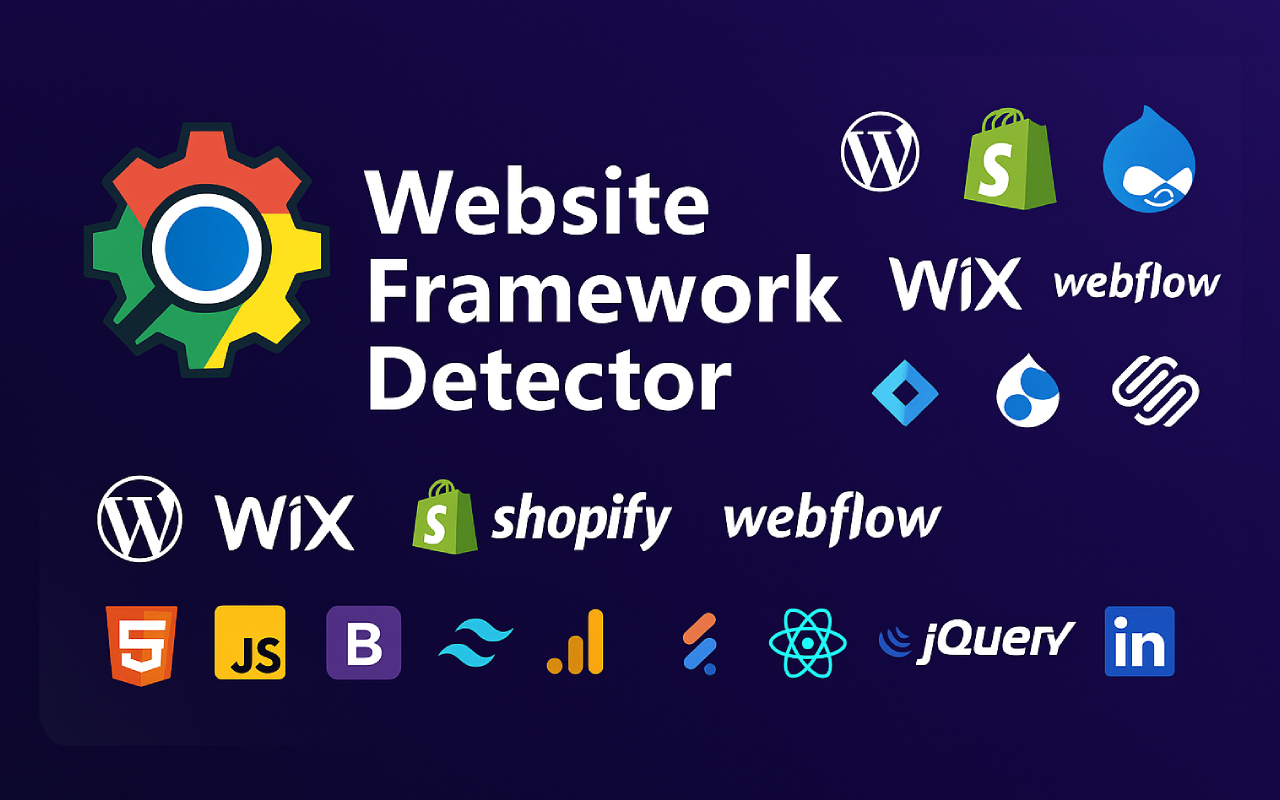Free Website Framework Detector Chrome Extension
Find out what a website is built with: CMS, frameworks, hosting/CDN, server stack, analytics tags, and SEO/meta—instantly.
Published: • Updated:

Find out what a website is built with: CMS, frameworks, hosting/CDN, server stack, analytics tags, and SEO/meta—instantly.
Published: • Updated:

Identifies common CMSs like WordPress, Shopify, Wix, Magento, Drupal, Joomla, and more.
Detects React, Vue, Angular, Next.js, jQuery, Bootstrap, Tailwind, and popular UI kits.
Surface providers like Cloudflare, Netlify, Vercel, AWS, Google Cloud, and common CDNs.
Signals server stack hints (Apache, Nginx, IIS), languages (PHP, Node.js, ASP.NET), and headers.
Finds GA4, Google Tag Manager, Facebook Pixel, Hotjar, and other tracking snippets.
Checks canonical, robots, structured data presence, meta tags, and social cards.
Website Framework Detector is a lightweight Chrome extension that helps you understand what any site is built with. In a single click, it scans the active tab and summarizes the platform and technology stack it finds — including CMS detection (WordPress, Shopify, Wix, Magento, Drupal), popular frontend libraries and frameworks (React, Vue, Angular, Next.js, jQuery, Bootstrap, Tailwind), hosting/CDN providers (Cloudflare, Netlify, Vercel, AWS, Google Cloud), server and backend hints (Apache, Nginx, IIS; PHP, Node.js, ASP.NET), analytics tags (GA4, Google Tag Manager, Facebook Pixel, Hotjar), and essential SEO/meta signals. If you also care about on‑page optimization details, pair this tool with the SEO Checklist extension to audit titles, meta descriptions, headings, links, images, structured data, and quick performance/accessibility hints.
Exact permissions will be finalized per the manifest (see GitHub repo).
This extension runs locally in your browser. No personal data is collected or transmitted. Detection happens on-device. Optional GitHub usage is client-side only.
Reach out via WhatsApp or open an issue on GitHub. I’d love your feedback.
Contact on WhatsApp Open GitHub Issue